
Child labour refers to the exploitation of children through any form of work that deprives children of their childhood, interferes with their ability to attend regular school, and is mentally, physically, socially or morally harmful. Such exploitation is prohibited by legislation worldwide, although these laws do not consider all work by children as child labour; exceptions include work by child artists, family duties, supervised training, and some forms of child work practiced by Amish children, as well as by Indigenous children in the Americas.

Asia-Pacific Economic Cooperation (APEC) is an inter-governmental forum for 21 Pacific Rim member economies that promotes free trade throughout the Asia-Pacific region. Inspired from the success of Association of Southeast Asian Nations (ASEAN)’s series of post-ministerial conferences launched in the mid-1980s, the APEC was established in 1989 in response to the growing interdependence of Asia-Pacific economies and the advent of regional trade blocs in other parts of the world; and to establish new markets for agricultural products and raw materials beyond Europe. Headquartered in Singapore, the APEC is recognised as one of the oldest forums and highest-level multilateral blocs in the Asia-Pacific region, and exerts a significant global influence.

Iqbal Masih was a Pakistani Christian boy who became a symbol of abusive child labour in the developing world.
The Child Labour Programme of Action is the national plan on elimination of child labour in South Africa. It was provisionally adopted by a large group of key stakeholders in September 2003. These stakeholders include key government departments, including those responsible for labour, education, provincial and local government, water service, justice, policing, prosecution, social development, and education. The lead department is the Department of Labour. It was previously known as the Child Labour Action Programme, but was renamed in February 2006 because of the negative connotation attached to the abbreviation CLAP.
A Child Labour Programme of Action, sometimes called a Child Labour Action Programme or Action Programme on the Elimination of Child Labour (APEC) is a national programme aimed at addressing child labour within a given country. It includes, but is not restricted to, the Worst Forms of Child Labour.
The programme Towards the Elimination of the worst forms of Child Labour (TECL) is a programme on child labour and related issues that is run in all the countries of the Southern African Customs Union (SACU), namely Botswana, Lesotho, Namibia, South Africa and Swaziland.
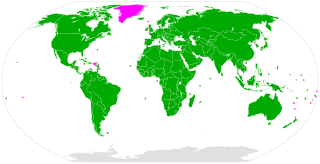
The Convention concerning the Prohibition and Immediate Action for the Elimination of the Worst Forms of Child Labour, known in short as the Worst Forms of Child Labour Convention, was adopted by the International Labour Organization (ILO) in 1999 as ILO Convention No 182. It is one of eight ILO fundamental conventions.
The International Labour Organization Worst Forms of Child Labour Convention calls for time-bound programmes for the eradication of the worst forms of child labour. Countries ratifying this Convention must take immediate and effective measures to secure the prohibition and elimination of the worst forms of child labour (WFCL) as a matter of urgency.
The International Programme on the Elimination of Child Labour (IPEC) is a programme that the International Labour Organization has run since 1992. IPEC's aim is to work towards the progressive elimination of child labour by strengthening national capacities to address child labour problems, and by creating a worldwide movement to combat it.
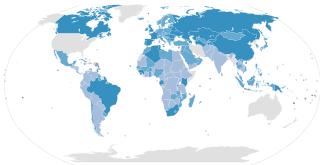
The ILO Convention concerning Minimum Age for Admission to Employment C138, is a convention adopted in 1973 by the International Labour Organization. It requires ratifying states to pursue a national policy designed to ensure the effective abolition of child labour and to raise progressively the minimum age for admission to employment or work. Convention C138 replaces several similar ILO conventions in specific fields of labour.
Significant levels of child labour appears to be found in Lesotho. The 1997 Lesotho Labour Force Survey found that 4.6% of males who were working full-time, 14.1% of males who were working part-time and 1.3% of male job seekers in Lesotho were aged between 10 and 15 years. Many of these would have been involved in herding and those with part-time work were not necessarily earning an income but may well have been working on family land in subsistence agriculture.

Child labour in Bangladesh is common, with 4.7 million or 12.6% of children aged 5 to 14 in the work force. Out of the child labourers engaged in the work force, 83% are employed in rural areas and 17% are employed in urban areas. Child labour can be found in agriculture, poultry breeding, fish processing, the garment sector and the leather industry, as well as in shoe production. Children are involved in jute processing, the production of candles, soap and furniture. They work in the salt industry, the production of asbestos, bitumen, tiles and ship breaking.
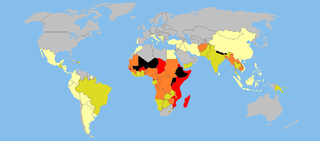
Child Labour is the practice of having children engage in economic activity, on a part- or full-time basis. The practice deprives children of their childhood, and is harmful to their physical and mental development. Poverty, lack of good schools and the growth of the informal economy are considered to be the key causes of child labour in India. Some other causes of Child Labor in India are cheap wages and accessibility to factories that can produce the maximum amount of goods for the lowest possible price. Corruption in the government of India also plays a major role in child labour because laws that should be enforced to prevent child labor are not because of the corrupt government.

APEC United States 2011 was a series of political meetings around the United States between the 21 member economies of the Asia-Pacific Economic Cooperation during 2011. It culminated in the 19th APEC Economic Leaders' Meeting held at the Hawaii Convention Center in Honolulu, Hawaii from November 12–13, 2011. The United States last hosted an APEC summit at the 1993 summit in Seattle. President Barack Obama, a Honolulu native, and First Lady Michelle Obama hosted the other leaders and spouses.
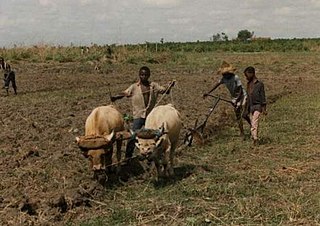
Child labour in Africa is generally defined based on two factors: type of work and minimum appropriate age of the work. If a child is involved in an activity that is harmful to his/her physical and mental development, he/she is generally considered as a child labourer. That is, Any work that is mentally, physically, socially or morally dangerous and harmful to children, and interferes with their schooling by depriving them of the opportunity to attend school or requiring them to attempt to combine school attendance with excessively long and heavy work. Appropriate minimum age for each work depends on the effects of the work on the physical health and mental development of children. ILO Convention No. 138 suggests the following minimum age for admission to employment under which, if a child works, he/she is considered as a child laborer: 18 years old for hazardous works, and 13-15 years old for light works, although 12-14 years old may be permitted for light works under strict conditions in very poor countries. Another definition proposed by ILO’s Statistical Information and Monitoring Program on Child Labor (SIMPOC) defines a child as a child labourer if he/she is involved in an economic activity, and is under 12 years old and works one or more hours per week, or is 14 years old or under and works at least 14 hours per week, or is 14 years old or under and works at least one hour per week in activities that are hazardous, or is 17 or under and works in an “unconditional worst form of child labor”.
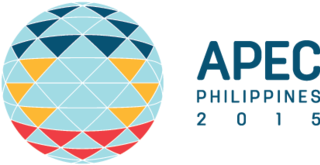
APEC Philippines 2015 was the year-long hosting of Asia-Pacific Economic Cooperation (APEC) summit which concluded with the APEC Economic Leaders' Meeting held on 18–19 November 2015 in Pasay, Metro Manila. It was the second time the Philippines hosted the summit, the first being the 1996 APEC summit.
APEC Philippines 1996 was a series of Asia-Pacific Economic Cooperation meetings focused on economic cooperation, held at the Subic Bay Freeport Zone in Subic, Zambales on 24–25 November 1996. It was the eighth APEC meeting in history and the first held in the Philippines.

APEC Vietnam 2017 was the year-long hosting of Asia-Pacific Economic Cooperation (APEC) meetings in Vietnam, which culminated with the APEC Economic Leaders' Meeting in Đà Nẵng, hosted at InterContinental Danang Sun Peninsula Resort. It marked the second time Vietnam played host to the APEC, having hosted the event previously in 2006.













